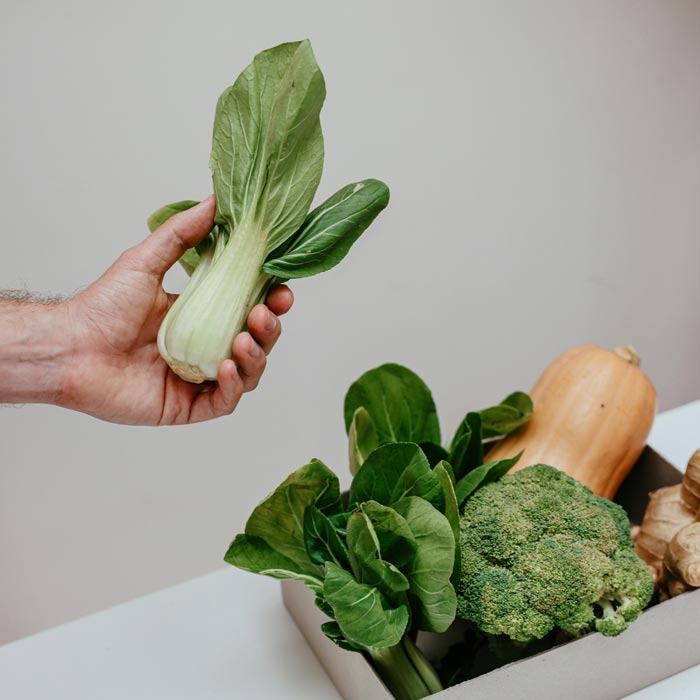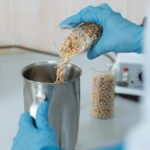Who doesn’t want to be smarter, faster, and wiser? Brain foods are foods that improve cognitive function, memory, and decision-making. These qualities are highly valued in almost every profession.
The concentration of nutrients in “brain food” such as zinc, vitamin E & K and omega-3 fatty acid, B12, has been shown to have cognitive benefits. These nutrients act synergistically to protect brain and nerve function, while also preserving brain volume and reducing inflammation.
You’ve probably heard this before: “You are what you eat.” To maximize your brainpower and reduce mental fatigue, stock up on these foods.
- Blueberries. These little blue spheres are also known as “brainberries” because they contain polyphenols and, in particular, anthocyanins. They reduce inflammation and stress in the brain and improve memory and neuronal communication. These can be eaten fresh or frozen. Pair them with the seeds or nuts below to get even more benefits.
- Fatty Seafood. Fatty seafood like salmon and sardines is one of the richest sources of low-mercury omega-3 fatty acid. Omega-3 fats are essential for brain health, reducing inflammation and preventing vascular diseases. Low omega-3 consumption is associated with depression and learning deficits . The magnesium and zinc in oysters, mussels, and clams are essential for brain health. Include 3 portions of fatty fish each week.
- Eggs. yolks are rich in zinc, omega-3 fatty acids, and choline. Choose pastured eggs, which are usually richer in Omega-3 fats. For a brain-healthy breakfast, serve whole eggs with avocados, leafy greens and legumes.
- Dark leafy greens. This vegetable is one of the best for preventing disease and promoting health. These vegetables are high in beta-carotene and other phytochemicals, as well as folate, zinc and fiber. They also contain kaempferol and vitamin E. Regularly consume at least 1 1/2 cups of kale or spinach, collards greens, Swiss Chard, turnip leaves, or Swiss chard to improve memory and reduce cognitive decline.
- Lion’s Main Mushroom. These shaggy white mushrooms are used for culinary and medicinal purposes in East Asian countries. They can be purchased as a whole food, tea powder, or supplement extracts. The mushrooms are rich in two bioactive substances, hericenones, and erinacines, which, according to research, improve brain health, cognitive performance, and memory. The majority of studies that show benefits use a daily dosage of 2.7mg/pound up to a maximum of 3.0g.
- Hemp seeds. These tiny seeds are nutritional powerhouses – rich in iron, magnesium, potassium, zinc and omega-3 fatty acid. The 30g of seeds (2 tablespoons) provides you with 55% of the daily magnesium requirement. Add hemp seed to smoothies, salads and stir-fries.
- Walnuts & Almonds. Walnuts & Almonds are among the best nuts for your diet because of their zinc, magnesium and fiber content, as well as their neuron-protecting Vitamin E. Add almonds or walnuts to yogurt, oatmeal or toast. You can also use them as nut butter.
- Legumes. Peas, beans, and lentils provide a great source of plant protein and slow-digesting carbs to fuel physical activity and brain function. Legumes contain phytochemicals, such as isoflavones, that have been linked to improved mood and memory. Add your legumes to salads, soups, hummus or dips by soaking, sprouting, stewing or roasting them.
- Green Tea & Coffee. The caffeine in coffee and L-theanine found in green tea can help you improve your focus and cognition. The ideal caffeine intake is 300mg per day or 2-4 cups of green tea. This should come from food and drinks, not supplements. Green tea contains L-theanine, a unique amino-acid that crosses the blood brain barrier. It is that gives you a calm focus. L-theanine, like caffeine, helps maintain and preserve cognitive functions and reduces age-related decline. It also reduces the risk of neurodegenerative disorders such as Alzheimer’s disease and stroke. Caffeine has a peak effect 30-60 minutes after consumption, but the effects can last for several hours. Avoid drinking caffeine 6 hours before going to bed.
Bonus: Water. The brain and body contain about 60% water. Even mild dehydration may cause headaches and brain fog. Fluid requirements may increase in people who exercise, have a salty diet, are pregnant or hot weather. Water, sparkling water or unsweetened tea are all good options for hydration. Fruits and vegetables, which contain a lot of water, can also be a source. According to the Institute of Medicine, men should drink 125 ounces of water per day and women 91 ounces. You can also use the simple rule of half your body weight in pounds. You’re probably well hydrated if you rarely feel thirsty, and your urine color is pale yellow.
These foods are often consumed as part of a Mediterranean diet, which has anti-inflammatory properties. In addition to other healthy lifestyle practices like daily exercise, good sleep, stress management and quitting smoking, this dietary pattern is often linked with protection against cognitive decline and neurodegenerative disease such as dementia and Alzheimer’s. These and other nutrient rich foods can help you maintain your health.



